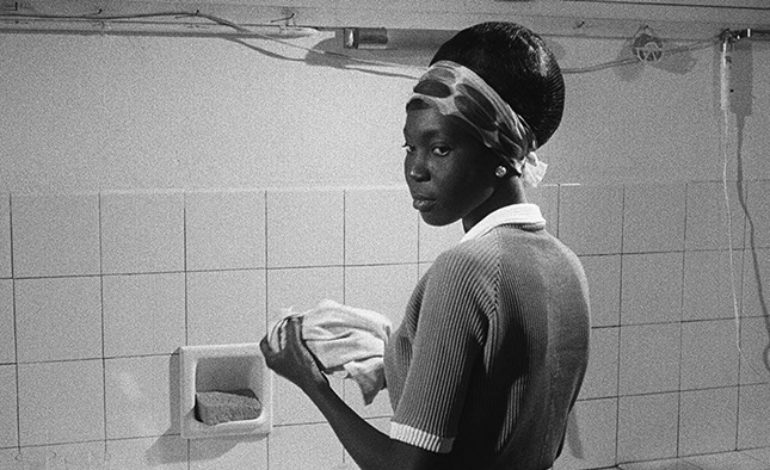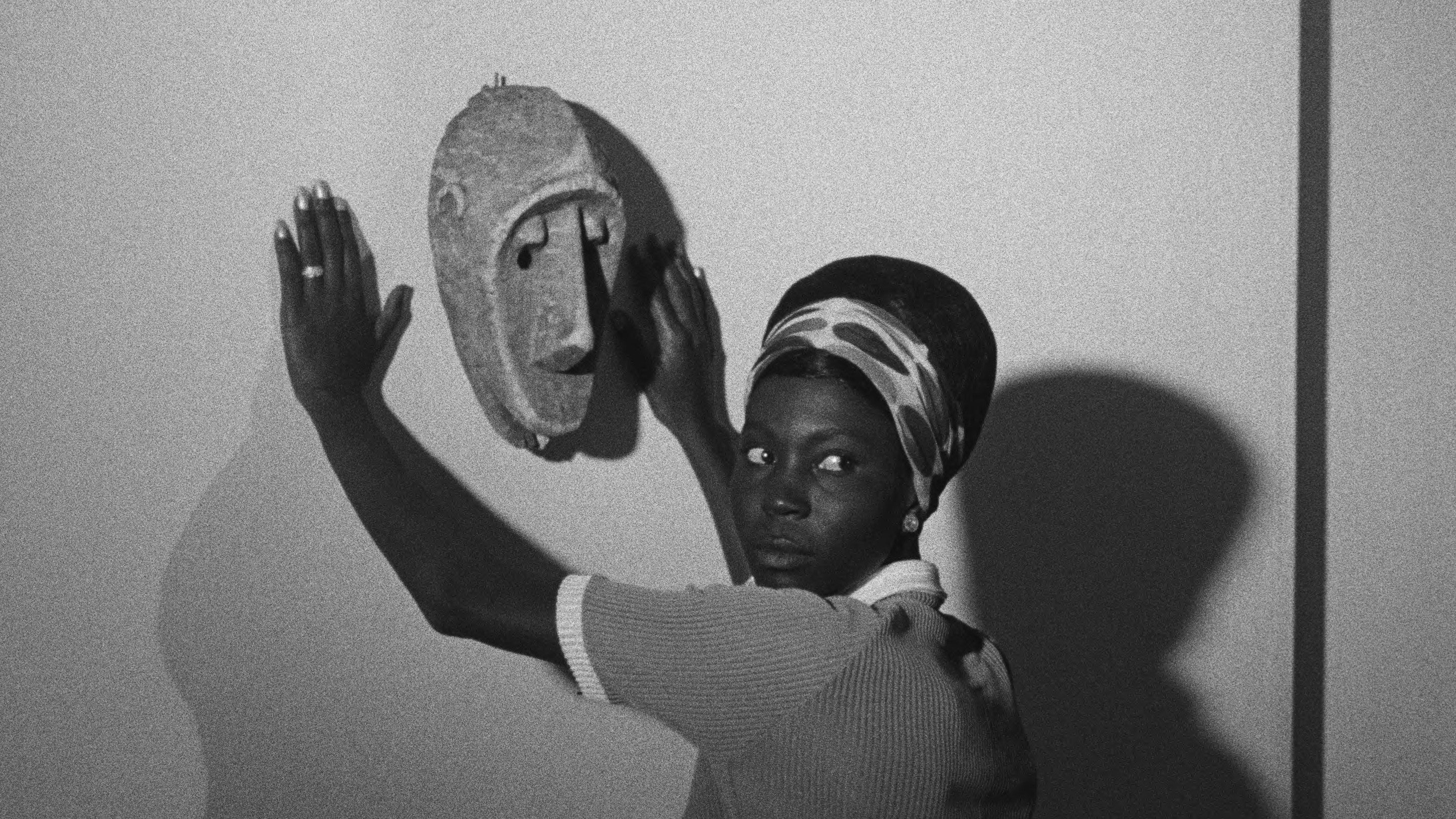

Black Girl, a French-Senegalese film and first feature by groundbreaking writer and director, Ousmane Sembène, follows the story of a young Senegalese woman brought to the South of France to work as a nanny. Sembène oftentimes referred to as the father of African cinema, thoughtfully directs a film as poignant in 1966 as it is today. Black Girl, a low budget black and white film, turned economic limitations into cinematic magic and put Sub-Saharan African filmmaking on the map. The son of a fisherman raised mostly by his maternal grandmother, Sembène once said “The development of Africa will not happen without the effective participation of women. Our forefathers’ image of women must be buried once for all.” This was a philosophy he not only preached but practiced throughout the span of his nearly 50 year long career. His most seminal works include Faat-Kiné (2006) and Moolaadé (2004), both stories show the complex interpersonal lives of women.
In Black Girl, Sembène reflects on European colonialism in Africa, through the character of Diouana, and her story of working for an affluent young family in the South of France. Diouana, played by Mbissine Thérèse Diop, dreams of taking care of children in France, so when she’s offered work as a nanny for a young couple, she happily accepts. The sixty-five minute long narrative follows two timelines, through flashbacks the audience sees the contrast between Diouana’s life in Dakar, Senegal and the posh French home she currently inhabits. The narrative is misleadingly simple; there’s only a handful of locations and only three main characters but these cinematic choices further emphasizes the feelings of isolation experienced by Diouana. The couple, simply referred to as Madame and Monsieur, played by Anne-Marie Jelinck and Robert Fontaine, happily treat Diouana like a slave, making demands of her time she never dreamed of.


In the opening scene we see Diouana descend from a large ship in a glamorous dress and high heels; this image stands in steady contrast to the apron and maid uniform later provided for her by Madame. Despite her modest background Diouana struts around the house cooking and cleaning in her beautiful dresses and glamorous heels until the Madame one day scolds her, “Don’t forget your place here” she says before handing over the apron and simple uniform to Diouana. While at times the characterization of the Madame and Monsieur falls flat, the message remains clear; not all violence is loud or even brutal. The unsynchronized sound used furthers the theme of displacement felt by Diouana. Much like the sound floating above the actors’ moving lips, Diouana’s sense of loneliness hangs above every scene in the French home.
In another scene, at a dinner party one of the guests grabs Diouana and kisses her without consent, simply because he had never kissed a black girl before. In these moments, Sembene weaves Diouana’s thoughts over the narrative of the film, allowing her voice over to confront the tension between her and the family. Through these voice overs, Sembene allows the audience to understand Diouana more intimately, and gives her character agency, even while she remains unknown to the family she’s living with. In many ways these moments feel completely modern. The climax of the film is shocking, but when Sembène reveals the headline from the newspaper that informed the plot; the climax becomes that much more powerful. Diouana’s story already happened, Black Girl, reflects on why.
VERDIT : 5 out of 5 stars.
In the final scene, the African mask Diouana gifts her employers is returned to her mother in Senegal. A little boy grabs the mask, holds it over his face and looks direct into the camera, a direct challenge to the gaze. Sembène challenged assumptions of colonialism, classism, racism, feminism and more told through the story of a young Senegalese girl finding work in France. The commentary feels fresh fifty years later because the questions posed throughout the film are ones still being grappled with today. Still, we can all be happy Ousmane Sembène left us with an introduction to more difficult conversations to come.
